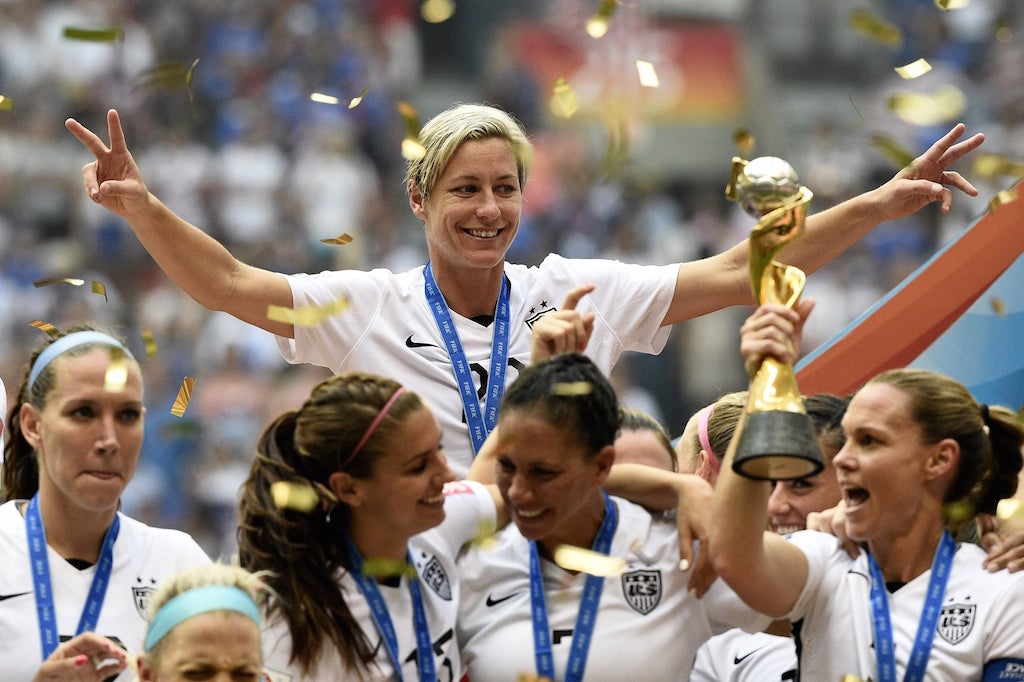US women soccer stars file federal wage discrimination complaint
Five top players from the 2015 World Cup winning team are involved in the complaint.

Five stars from the US Women's 2015 World Cup-winning side have accused the United States Soccer Federation of wage discrimination, according to a complaint filed in US federal court.
Co-captains Carli Lloyd and Becky Sauerbrunn, along with stars Alex Morgan, Megan Rapinoe and Hope Solo say in the complaint that the US Women's National Team is more lucrative for the US Soccer Federation than the Men's National Team, the New York Times reported.
"We have been quite patient over the years with the belief that the federation would do the right thing and compensate us fairly," Lloyd, the Golden Ball winner at the 2015 World Cup, said in a statement through lawyer Jeffrey Kessler.
"We are the best in the world, have three World Cup championships, four Olympic championships and the USMNT get paid more to just show up than we get paid to win major championships," said Solo, the team's goalkeeper.
In terms of success, there is no comparison between the US Men's and Women's team. The women won the World Cup in 1991, 1999 and 2015 and were runners-up in 2011. The men have never won a World Cup and their best result was a third-place finish in 1930. In recent times, the best men's result was a trip to the quarter finals in 2002.
Still, the men make up to four times more than the women, according to ESPN.
For winning the 2015 World Cup, the Women's National Team received $2 million. In 2014, when the Men's National Team were knocked out in the second round of the World Cup in Brazil, the men received $9 million.
"This is the strongest case of discrimination against women athletes in violation of law that I have ever seen," said Mr. Kessler.
While women are paid a salary by US Soccer and men only receive bonuses if they're called into the national team, bonuses received by the players are disparate. The Times reported that men receive $5,000 for losing a friendly match and can earn as much as $17,625 for beating a quality opponent. Women would make $1,350 for such a win and make nothing for losses or draws.
A common argument against equal pay for women in sport is that the women's game is not as popular. That doesn't appear to be a reasonable argument here, as the 2015 Women's World Cup Final was the most-watched event in US Soccer history, according to the federation. Nearly 23 million people tuned in to watch the US women beat Japan.
David Nathanson, head of business operations for Fox Sports, which won the broadcast rights for men's and women's World Cups between 2015 and 2022, told the New York Daily News that Fox valued the women's tournament very highly.
"I can tell you that when we were bidding on the rights, we valued the Women's World Cup almost as highly as the men's World Cup," Mr Nathanson said. "We knew there was tremendous value in it from an early stage, and we certainly considered that when we were bidding on the rights."
At this point it is not known how long it will take this equal-pay issue to play out, but if the women are successful, they could be entitled to millions of dollars in back pay and better compensation going forward.
Follow @PaytonGuion on Twitter.
Join our commenting forum
Join thought-provoking conversations, follow other Independent readers and see their replies
Comments
Bookmark popover
Removed from bookmarks